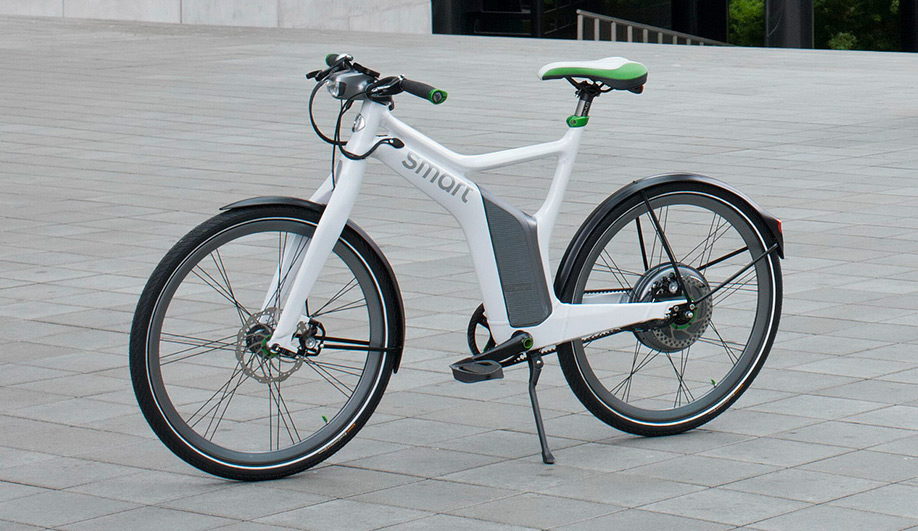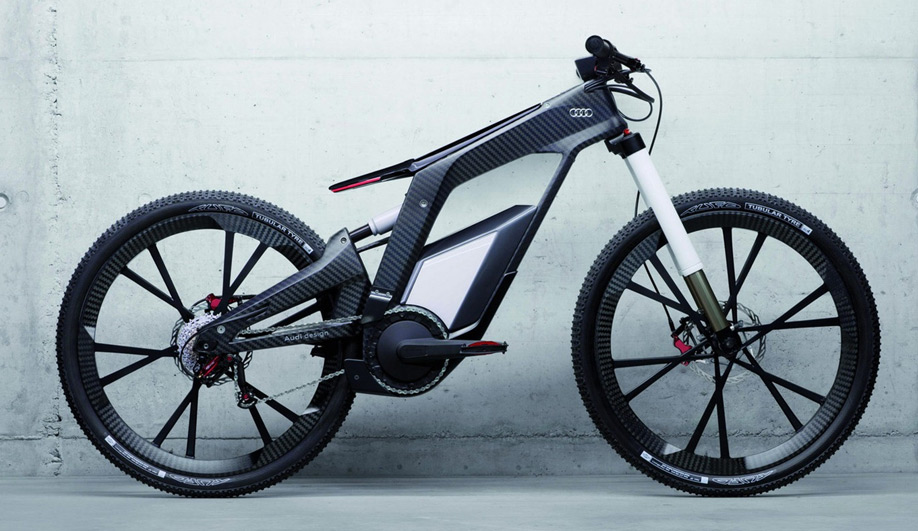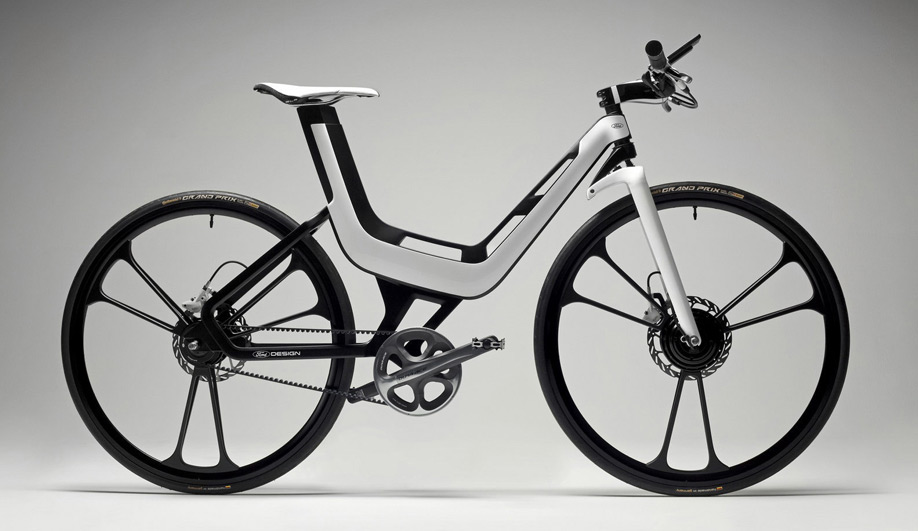With the first signs of warm weather, the bikes come out. For automakers, bicycle commuters represent an untapped market segment, one they hope can be encouraged to upgrade to electric models. E-bikes have obvious benefits over pedal-powered bikes – they allow both experienced and inexperienced riders to tackle the tallest of hills and travel the same distances as cars. The latest versions even let you dock your smartphone on the handlebar, helping you navigate, share routes and manage the e-bike’s system. From a broader perpsective, these silent, technologically rich vehicles expand transport options, and produce zero-emissions at the tail pipe, contributing to a more sustainable city. Here are three of the latest e-bike innovations – one on the market and two in concept phase.
The Red Dot-winning E-Bike from Smart is a pedal-assisted electric bicycle, or “Pedelec” designed to get inexperienced – even out-of-shape – riders to traverse great distances without breaking a sweat. It features a 423 Wh (watt hour) lithium-ion battery that brings it to a top assisted speed of 25 kilometres per hour for up to 100 kilometres on a single charge. Other features include energy storage via brake-regeneration, LED Lighting, a carbon drive-belt, a smartphone charging dock, as well as integration with an app that monitors battery consumption, speed and other metrics. Sold exclusively at Smart dealers starting in mid-July, it will have a sticker price of around $4,000.
Audi’s lightweight Wörthersee is a concept for a luxury Pedelec with a carbon fibre-reinforced polymer frame and wheels. Still being developed for the market, this e-bike alternates between electrically assisted drive and electric-only drive, via numerous programs selected on a handle-bar-mounted smartphone. It features a powerful 2.3-kilowatt electric motor matted to a 530 Wh lithium-ion battery, for performance that rivals that of a motorcycle. The pedal-assisted top speed is 80 kilometres per hour, and it can reach 50 kilometres per hour without rider assistance. Equipped with Audi’s high-end engineering, this concept offers a sportier, fresher approach to e-bikes.
Whether or not it makes it to the market, the Ford E-Bike Pedelec concept pushes the innovation envelope. It has an aluminum and carbon frame that weighs in at 2.5 kilograms. And its 340 Wh lithium-ion battery lets a rider achieve an 85-kilometre range with a single charge. But the biggest news is its use of Magnetostriction technology, borrowed from the world of Formula One Racing. Magnets relay bearing evolutions in hundreths of seconds in order to rev up the electrically assisted drive when the pedaller needs it most. Top speed, like the Smart, would be limited to 25 kilometres an hour.



